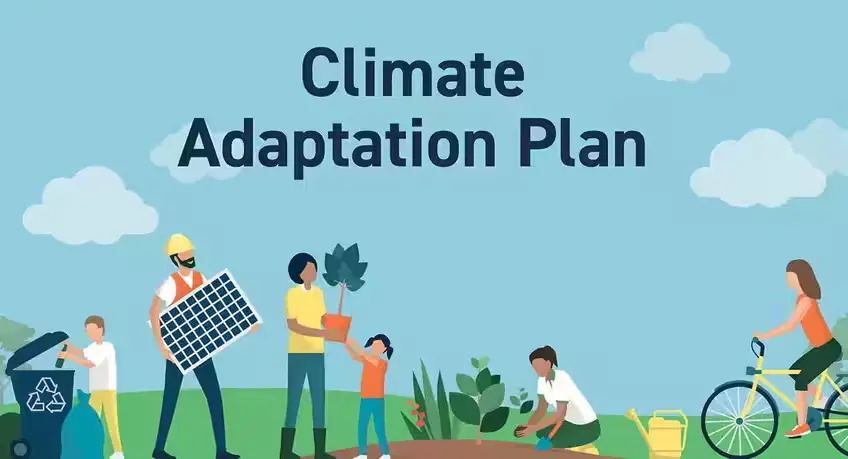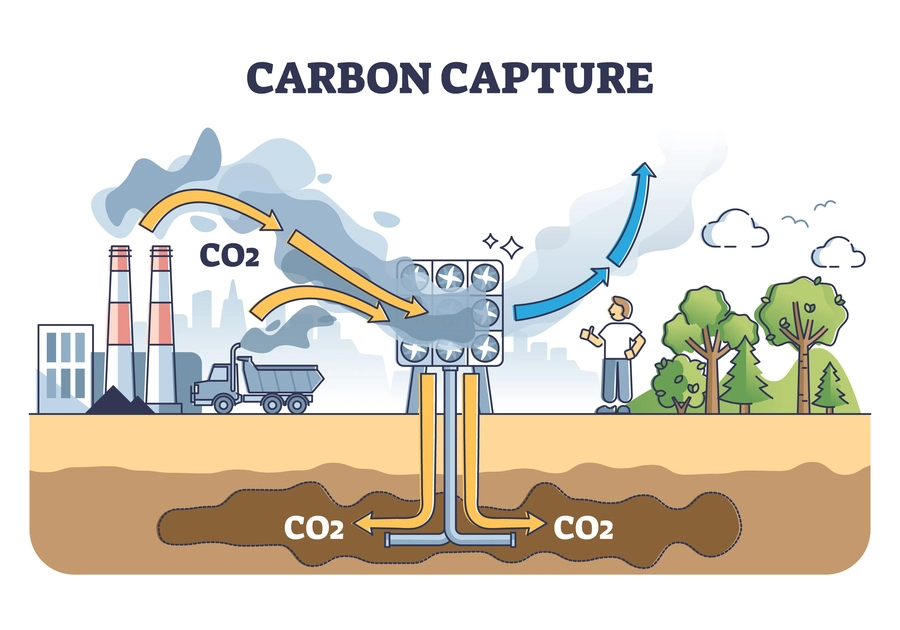Climate change is a global crisis that demands innovative solutions. Artificial Intelligence (AI) has emerged as a key player in our efforts to combat and adapt to the impacts of climate change. This article breaks down how AI is making a significant difference in our fight against the changing climate.
Understanding Climate Patterns with AI

AI is like a superhero when it comes to analyzing massive amounts of climate data. Using machine learning can uncover hidden trends, anomalies, and connections that might be tricky for traditional methods. This knowledge is crucial for predicting future climate changes and creating strategies to deal with them.
Mastering Climate Models
AI-driven climate models help us simulate and predict climate changes more accurately. By considering various factors like greenhouse gas emissions and ocean currents, these models assist researchers in understanding potential future scenarios and crafting informed policies.
Weather Warnings
AI is at the heart of early warning systems for extreme weather events. By analyzing historical data, these systems can predict the likelihood and severity of events such as hurricanes, floods, and droughts. This enables communities to take proactive measures and reduce the impact on lives and infrastructure.
Sustainable Energy Management

Transitioning to sustainable energy sources is a vital part of the climate change battle. AI is playing a crucial role in making our energy production, distribution, and consumption more efficient.
Brilliant Grids
AI-powered smart grids improve the efficiency of energy distribution by intelligently managing electricity flow. They can predict energy demand, identify areas prone to power outages, and adjust energy distribution to minimize waste and enhance reliability.
Embracing Renewable Energy
AI is instrumental in integrating renewable energy sources like solar and wind into the power grid. By predicting energy generation patterns and optimizing storage, AI helps improve the overall reliability of renewable energy systems.
Climate Change Adaptation Strategies

Adapting to the inevitable impacts of climate change is vital. AI contributes significantly to the development and implementation of effective adaptation strategies.
Smart Farming
AI-driven solutions assist farmers in adapting to changing climate conditions. By providing real-time information on weather patterns, soil health, and crop management, precision agriculture helps reduce waste and enhance food security.
Keeping an Eye on Ecosystems
AI-powered sensors and drones enable real-time monitoring of critical ecosystems. This helps scientists and policymakers make informed decisions to protect vulnerable species and habitats.
Carbon Capture and Reduction

Reducing carbon emissions is crucial for addressing the root cause of climate change. AI technologies contribute to innovative solutions in this essential area.
Trapping Carbon
AI is used to develop and optimize carbon capture technologies, which capture and store carbon dioxide emissions from industrial processes. These technologies play a vital role in achieving carbon neutrality.
Watching Emissions
AI enables more accurate monitoring of industrial emissions in real time. This helps industries identify and address potential issues before they become significant problems, contributing to overall emission reduction efforts.
Climate Policy and Decision-Making

Effective climate change mitigation requires informed decision-making at the policy level. AI assists in analyzing vast datasets, simulating scenarios, and developing evidence-based policies.
Testing Policies
AI models simulate the potential impact of different policy interventions. This helps policymakers assess the effectiveness of proposed measures before implementing them, optimizing resource allocation.
Assessing Climate Risks
AI contributes to comprehensive climate risk assessments, helping governments and organizations identify vulnerabilities and develop strategies to address them. This proactive approach is essential for building resilience and minimizing the socio-economic impact of climate change.
Conclusion
AI is good at understanding climate science. Also, AI is helping a lot in healthcare by changing how we diagnose illnesses, creating personalized treatments, and taking care of patients. This shows that AI is not only crucial for dealing with climate issues but also for making big improvements in different areas. We need to use AI to help the environment and improve our well-being at the same time.
FAQs
Can AI help reduce carbon emissions?
Yes, AI can help reduce carbon emissions by optimizing energy consumption, improving efficiency in industries, and enabling smart grid management. Machine learning models can identify opportunities for energy savings and suggest strategies
What role does AI play in renewable energy?
AI is used in renewable energy to enhance the efficiency of solar and wind power systems. Machine learning algorithms help predict energy production, optimize grid integration, and improve the overall performance of renewable energy sources.
Is there a risk of AI contributing to environmental issues?
While AI can be a powerful tool for addressing climate change, there are concerns about its environmental impact. The training of large AI models can be energy-intensive. It’s important to develop and use AI technologies responsibly to minimize any negative environmental consequences.
How can individuals contribute to AI-driven climate solutions?
Individuals can contribute by staying informed about AI’s role in climate solutions, supporting sustainable practices, and advocating for responsible AI development. Additionally, adopting energy-efficient technologies and practices in daily life can collectively contribute to mitigating climate change.
How can businesses leverage AI for sustainable practices?
Businesses can use AI to optimize their operations for sustainability. This includes supply chain optimization, energy-efficient processes, and the development of eco-friendly products. AI can help businesses make informed decisions that align with environmental goals.



